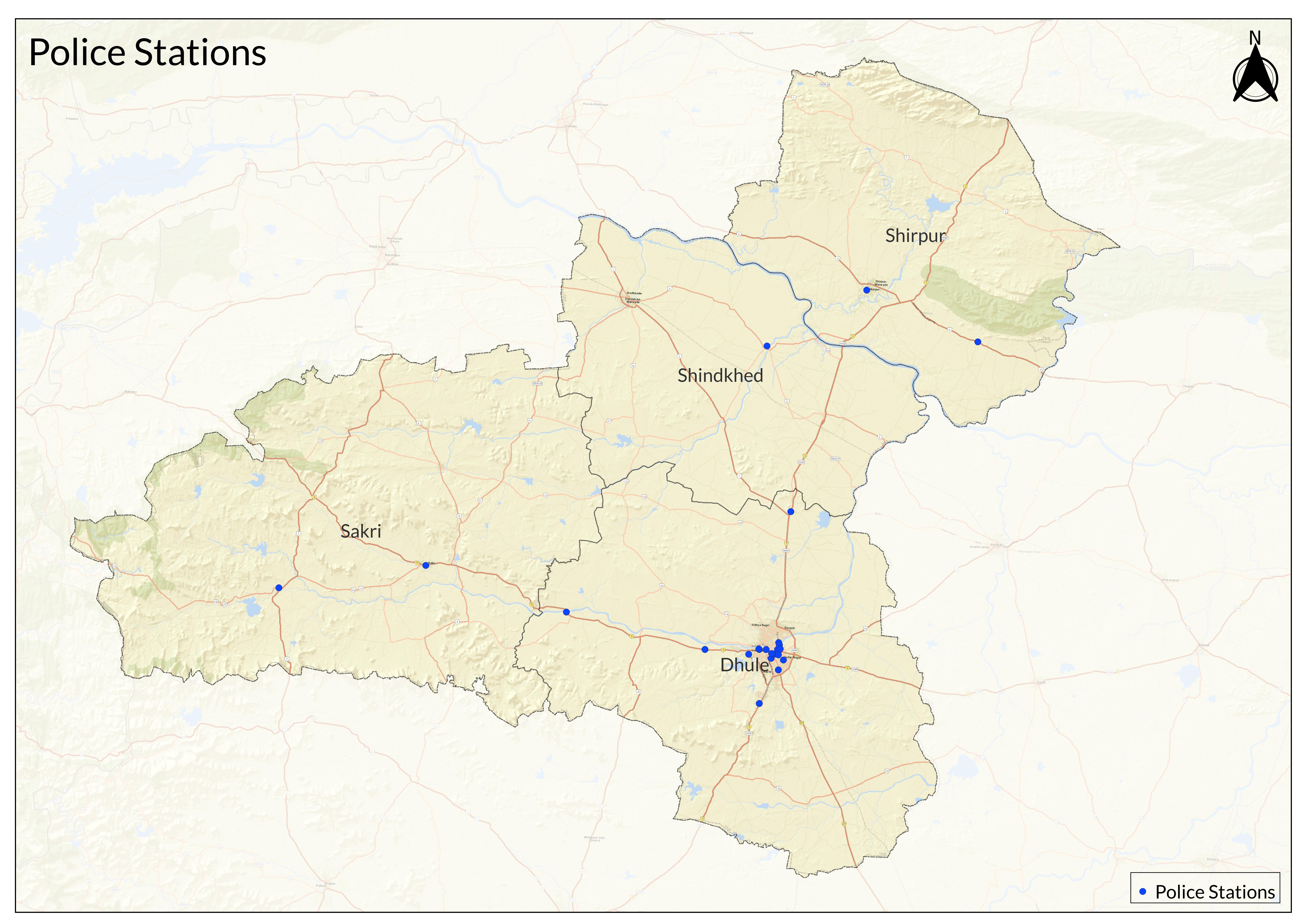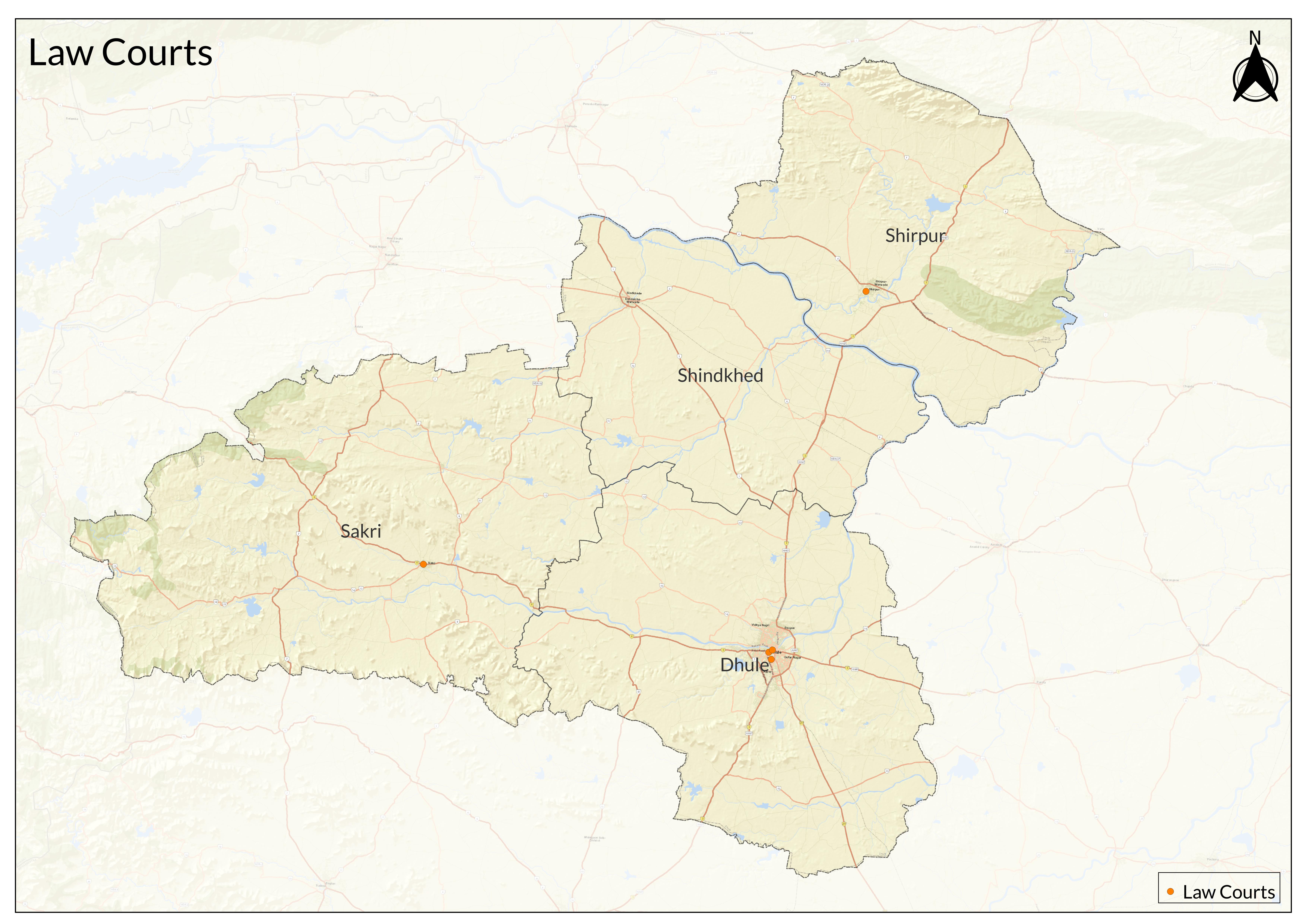Contents
- Jail System
- Community Perception of Safety
- Graphs
- Criminal Cases
- A. Cognizable Crimes under the Indian Penal Code (IPC)
- B. Select Offenses affecting the Human Body
- C. Select Offenses against Property
- D. Select Offenses against Public Tranquility
- E. Select Offenses relating to Documents and Property Marks
- F. Select Miscellaneous Crimes under the IPC
- G. Cognizable Crimes under Special and Local Laws (SLL)
- H. Select Offenses under Special and Local Laws (SLL)
- I. Crimes against Women
- J. Select Cases of Crimes against Women
- K. Cyber Crime
- L. Select Cases of Cyber Crime
- M. Cases of Fraud
- N. Reported Crimes against Women and Children
- Police Infrastructure and Workforce
- A. Police Infrastructure
- B. Police Officers and Employees
- Judicial System
- A. Number of Functioning Courts
- B. Judge Positions
- C. Cases Resolved
- D. Number of Original Cases Resolved
- E. Number of Appeal Cases Resolved
- Sources
DHULE
Police & Judiciary
Last updated on 5 November 2025. Help us improve the information on this page by clicking on suggest edits or writing to us.
Dhule district has a well-structured network of police stations spread across urban, rural, and strategic locations to ensure effective law enforcement and public safety. Major police stations include Dhule City, Aazadnagar, Chalisgaon Road, Mohadi Upnagar, Deopur, West Deopur, and Dhule Taluka, covering key areas within the district. Additionally, police stations in Songir, Sakri, Pimplner, Nijampur, Shindkheda, Nardana, Dondaicha, Shirpur Taluka, and Thalner play a crucial role in maintaining law and order in semi-urban and rural areas.
Locals in Dhule district commonly refer to police officers as ‘dada’, a term reflecting respect and familiarity.

Jail System
Established during British rule, Baba Jail, also known as Dhule District Jail, is one of Maharashtra’s oldest prisons, built in 1862. It has housed several political prisoners and freedom fighters over the years. Sane Guruji was among those imprisoned here multiple times for his role in the independence movement. His arrest in February 1932 was significant, as local accounts suggest he worked with fellow inmates, including Vinoba Bhave, to compose Geetai, a spiritual text reflecting their ideas on social reform. In the same year, freedom fighter Jamnalal Bajaj was also jailed here. Dhule District Jail remains an important part of the region’s history, linked to India’s struggle for independence.
Community Perception of Safety
In Dhule, the overall atmosphere is calm, and many residents appreciate the steady pace of life. The community is known to be friendly and supportive, contributing to a general sense of security. Students from other districts who come to Dhule for education find it relatively easy to navigate the city without major safety concerns.
However, certain incidents have prompted authorities to strengthen security measures in the district. In October 2024, damage to a Ram Mandir led to an increased police presence as a precautionary step to maintain communal harmony. Similarly, past events such as the 2008 riots and the 2013 police firing highlight the need for continued vigilance to ensure peace and stability in the region.
Graphs
Criminal Cases
Police Infrastructure and Workforce
Judicial System

Sources
National Human Rights Commission (NHRC). April 19, 2018. Report on Dhule Jail. NHRC, India.https://nhrc.nic.in/sites/default/files/jail…
Last updated on 5 November 2025. Help us improve the information on this page by clicking on suggest edits or writing to us.